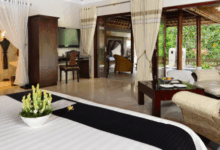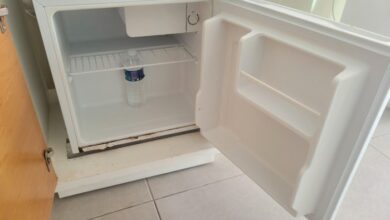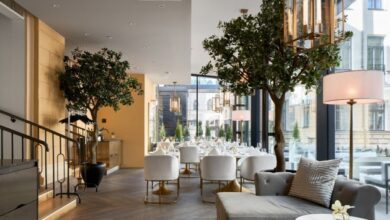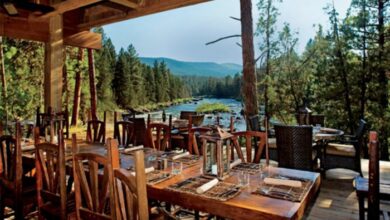Best Hotels For Business Travelers In Norway
Norway, a land of fjords and vibrant cities, offers a unique blend of stunning natural beauty and thriving business environments. Finding the right hotel for a business trip can significantly impact productivity and overall experience. This guide delves into the best hotels catering to the needs of business travelers in Norway, considering factors such as location, amenities, services, and value for money.
We’ll explore top cities for business, essential hotel features, and the importance of sustainability in the Norwegian hospitality sector, ensuring your next business trip is both productive and enjoyable.
From Oslo’s bustling financial district to Bergen’s historic harbor and Stavanger’s energy sector hub, each city presents distinct business profiles and hotel options. We’ll navigate the nuances of choosing a hotel, considering proximity to transportation, business-centric services like meeting rooms and high-speed internet, and the overall experience a business traveler seeks. This comprehensive guide aims to equip you with the knowledge to make informed decisions when selecting accommodation for your next Norwegian business venture.
Top Cities for Business Travel in Norway
Norway boasts a thriving business environment, attracting professionals from across the globe. Several cities stand out as particularly popular destinations for business travelers, each offering a unique blend of industry focus and professional atmosphere. Understanding the specific characteristics of these cities is crucial for effective planning and maximizing the business trip experience.
Oslo: The Hub of Norwegian Business
Oslo, Norway’s capital, is undeniably the leading city for business travel. Its central location and well-developed infrastructure make it easily accessible. The city’s diverse economy encompasses a wide range of sectors, attracting a broad spectrum of business travelers.The key business sectors in Oslo include finance, maritime, energy, technology, and government. Major international companies have established a significant presence here, alongside a thriving ecosystem of smaller startups and innovative enterprises.
The typical business traveler profile in Oslo is diverse, ranging from executives of multinational corporations to representatives of smaller firms in various industries. One might find representatives from shipping and oil companies, technology firms, and governmental agencies frequently conducting business in Oslo.
Bergen: Gateway to Maritime and Energy
Bergen, Norway’s second-largest city, holds a prominent position in the country’s maritime and energy sectors. Its strategic coastal location and historical ties to shipping and trade have shaped its business landscape. The city also benefits from a growing technology sector, attracting a younger generation of entrepreneurs and professionals.The dominant business sectors in Bergen are maritime, oil and gas, and seafood processing.
Furthermore, a growing number of technology companies are establishing offices in Bergen, drawn by the city’s skilled workforce and supportive entrepreneurial ecosystem. The typical business traveler in Bergen is often involved in maritime logistics, offshore energy operations, or the burgeoning tech scene. This leads to a mix of seasoned professionals and younger entrepreneurs attending conferences and conducting business in the city.
Stavanger: Energy Capital of Norway
Stavanger, situated on the southwestern coast, has earned its reputation as the “Energy Capital of Norway.” The city’s proximity to major oil and gas fields in the North Sea has attracted a large concentration of energy companies and related businesses. This sector’s dominance shapes the city’s business landscape and the profile of its business travelers.The oil and gas industry unequivocally dominates Stavanger’s business sector.
Support industries such as engineering, technology, and finance also play a crucial role. The typical business traveler to Stavanger is heavily involved in the oil and gas industry, often representing major international energy corporations or specialist service providers. One might expect to see representatives from multinational energy companies, engineering firms, and financial institutions frequenting Stavanger for business.
Hotel Amenities Crucial for Business Travelers
Choosing the right hotel is paramount for a successful business trip. Norwegian hotels, catering to a diverse clientele, offer a range of amenities designed to enhance the business traveler’s experience, from maximizing productivity to ensuring comfort and convenience. Understanding the key amenities and how they vary across different hotel categories is essential for making informed choices.A smooth and productive business trip hinges on access to several key amenities.
These are often considered non-negotiable by frequent business travelers, especially those who value efficiency and comfort. The presence or absence of these amenities can significantly impact their overall experience and perception of the hotel.
Essential Amenities for Business Travelers in Norway
Business travelers in Norway prioritize amenities that support their professional needs and contribute to a comfortable stay. Five essential amenities consistently rank highly in their preferences: high-speed internet access, comfortable and well-equipped workspaces, readily available meeting rooms or business centers, convenient location, and excellent on-site dining options. These elements combine to ensure a seamless and productive trip.
Comparison of Amenities Across Hotel Categories in Norway
Norwegian hotels, like those in many other developed countries, segment their offerings into budget, mid-range, and luxury categories. Each category offers a different level of amenity provision, impacting the overall business traveler experience. Budget hotels in Norway typically offer basic amenities, focusing on functionality over luxury. Mid-range hotels usually enhance this with upgraded rooms, more extensive dining options, and potentially a small business center.
Luxury hotels in Norway, however, go above and beyond, offering comprehensive business facilities, personalized services, and high-end amenities designed for maximum comfort and productivity. For example, a budget hotel might provide free Wi-Fi, but the speed might be limited, while a luxury hotel would offer ultra-fast, reliable Wi-Fi throughout the property, perhaps even dedicated lines for high-bandwidth needs.
Similarly, a budget hotel might offer a small desk and chair in the room, whereas a luxury hotel would provide a fully equipped workstation with ergonomic seating, ample desk space, and advanced technology integration.
Importance of High-Speed Internet Access
High-speed internet access is arguably the most critical amenity for modern business travelers. Reliable and fast internet is essential for conducting video conferences, sending and receiving large files, accessing critical data, and managing emails—all tasks crucial for a productive business trip. Slow or unreliable internet can significantly disrupt workflows, leading to lost productivity, missed deadlines, and frustration. The impact on business traveler satisfaction is therefore considerable; consistently reliable high-speed internet is a key differentiator between a positive and a negative hotel experience.
A hotel’s failure to provide adequate internet access can easily overshadow other positive aspects of the stay, potentially leading to negative reviews and impacting the hotel’s reputation among business travelers. Conversely, a hotel with excellent internet infrastructure gains a competitive advantage, attracting and retaining business clientele.
Location and Accessibility of Hotels
Choosing a hotel with optimal location and accessibility is paramount for business travelers in Norway. Time is a valuable commodity, and minimizing travel time between the hotel and business meetings, transportation hubs, and potentially, sightseeing locations, directly impacts productivity and reduces stress. A well-located hotel allows for efficient scheduling, maximizing the effectiveness of a business trip.Efficient travel is crucial for business trips, and hotel location plays a significant role in achieving this.
Proximity to business districts, airports, and train stations saves valuable time and minimizes travel-related disruptions. This contributes to a more streamlined and productive work experience, allowing business travelers to focus on their professional objectives.
Hotel Locations in Major Norwegian Cities
The following table illustrates examples of hotels in major Norwegian cities, highlighting their proximity to business districts and transportation access. Note that distances and travel times can vary depending on traffic conditions and chosen mode of transport.
| City | Hotel Name | Proximity to Business District | Transportation Access |
|---|---|---|---|
| Oslo | The Thief | Short walk/taxi ride to Aker Brygge business district | Close to Oslo Central Station, accessible by airport express train |
| Bergen | Grand Terminus Hotel | Located in the city center, close to many businesses | Easy access to Bergen Railway Station, and bus connections to Bergen Airport, Flesland |
| Stavanger | Scandic Stavanger City | Within walking distance of the Stavanger city center and many businesses | Convenient access to Stavanger Airport, Sola, by bus or taxi |
| Trondheim | Clarion Hotel President | Close to the city center and many business offices | Located near Trondheim Central Station, with bus connections to Trondheim Airport, Værnes |
Hotel Services Catering to Business Needs
Norwegian hotels understand the unique requirements of business travelers and offer a range of services designed to enhance productivity and comfort during their stay. These services extend beyond the typical amenities and focus on providing a seamless and efficient experience for professionals. This ensures a productive trip, minimizing disruptions and maximizing time efficiency.Many hotels in Norway cater specifically to business travelers, providing services that streamline work processes and offer a comfortable environment conducive to productivity.
This includes dedicated spaces for meetings and presentations, readily available technology, and support staff trained to assist with business needs. The level of service varies between hotel chains and individual properties, so careful selection based on specific needs is recommended.
Business Services Offered by Norwegian Hotels
Norwegian hotels offer a wide array of business-oriented services. These include, but are not limited to, well-equipped meeting rooms of varying sizes, often with advanced audio-visual equipment and high-speed internet access. Many hotels also provide dedicated business centers with printing, copying, and fax facilities. Airport transfers are a common offering, ensuring convenient and timely arrival and departure for busy travelers.
Some hotels even offer secretarial services, including assistance with document preparation and translation. Concierge services can also assist with booking appointments, arranging transportation, and making restaurant reservations.
Comparison of Business Services Across Three Hotel Chains
While specific offerings vary by location and hotel class, a general comparison can be made between three prominent Norwegian hotel chains: Scandic Hotels, Radisson Blu, and Thon Hotels. Scandic Hotels are known for their consistently reliable meeting room facilities and business centers, often featuring modern technology and comfortable workspaces. Radisson Blu hotels frequently emphasize their sophisticated meeting technology and dedicated business lounges, catering to a more upscale clientele.
Thon Hotels, with a wider range of properties, offer a more diverse selection of business services, adapting to the specific needs of each location, sometimes including more unique services like on-site fitness facilities that contribute to overall well-being during a busy trip. Ultimately, the best choice depends on the specific needs and budget of the business traveler.
Hypothetical Business Package: “The Oslo Executive”
This hypothetical package, offered by a fictitious high-end Oslo hotel, aims to provide a comprehensive business travel experience.
| Service | Description |
|---|---|
| Executive Suite Accommodation | Spacious suite with high-speed internet, ergonomic workspace, and stunning city views. |
| Daily Breakfast Buffet | Extensive buffet featuring fresh, local ingredients. |
| Private Meeting Room (4 hours) | Fully equipped meeting room with advanced A/V equipment, accommodating up to 10 people. |
| Business Center Access | Unlimited access to printing, copying, and scanning facilities. |
| Airport Transfers (roundtrip) | Private car service to and from Oslo Airport Gardermoen. |
| Complimentary Evening Cocktails | Relax and network with colleagues at the hotel bar. |
| 24-hour Concierge Service | Personalized assistance with any travel-related needs. |
This package offers a tailored experience for the discerning business traveler, ensuring productivity and comfort throughout their stay.
Hotel Reviews and Ratings from Business Travelers
Understanding the experiences of business travelers is crucial for selecting the best hotels in Norway. Analyzing reviews from reputable platforms provides invaluable insights into the strengths and weaknesses of different establishments, allowing for informed decision-making. This section examines common themes and sentiments expressed in online reviews, focusing on aspects directly relevant to the needs of business travelers.
Reputable Online Platforms for Hotel Reviews
Business travelers frequently utilize several online platforms to research and review hotels. Three highly reputable sources consistently provide detailed and reliable feedback: TripAdvisor, Booking.com, and Google Hotels. These platforms offer a large volume of reviews, often including specific comments about business-related amenities and services. The combination of user ratings and detailed textual reviews provides a comprehensive picture of the hotel experience.
Common Themes and Sentiments in Hotel Reviews
Analysis of reviews on the aforementioned platforms reveals recurring themes related to hotels catering to business travelers in Norway. Positive feedback consistently centers on aspects such as reliable Wi-Fi connectivity, comfortable and well-equipped workspaces, convenient locations near business districts or transportation hubs, and helpful and efficient staff. Negative comments frequently highlight issues with inconsistent Wi-Fi performance, lack of adequate workspace or business facilities (e.g., printing services, meeting rooms), inconvenient locations requiring long commutes, and subpar service levels.
Summary of Positive and Negative Aspects in Reviews
Positive Aspects: Reviews frequently praise hotels offering strong, reliable Wi-Fi, modern and functional workspaces within rooms or dedicated business centers, convenient locations near airports, train stations, or central business districts, availability of business services like printing and faxing, attentive and helpful staff who cater to business needs (e.g., early check-in/late check-out options), and comfortable and well-maintained rooms conducive to rest and productivity.
Negative Aspects: Conversely, negative feedback often focuses on unreliable or slow Wi-Fi, inadequate or uncomfortable workspace in rooms, inconvenient locations far from business districts or transportation hubs, lack of essential business services, unresponsive or unhelpful staff, noisy environments disrupting work or sleep, and high prices relative to the quality of service or amenities provided. These negative aspects are particularly concerning to business travelers, as they can significantly impact productivity and overall travel experience.
Price and Value for Money
Choosing a business hotel involves careful consideration of price alongside the services provided. While Norway is known for its high cost of living, understanding the pricing structure and evaluating value for money are crucial for effective budget management. This section compares average nightly rates across key cities and explores factors influencing hotel prices.Average nightly rates for business hotels vary significantly across Norway’s major business hubs.
Location, amenities, and seasonal demand are key factors influencing the final cost.
Average Nightly Rates in Major Cities
The average nightly rate for a business hotel can fluctuate considerably depending on the time of year and specific hotel. However, to provide a general overview, we can offer estimated ranges. Oslo, as Norway’s capital and largest city, generally commands the highest rates, with average nightly costs for business hotels ranging from approximately 2000 to 5000 NOK (Norwegian Krone) or more, depending on the hotel’s star rating and location.
Bergen, a popular coastal city, typically sees average nightly rates in the 1800 to 4000 NOK range. Stavanger, an important oil and gas hub, may fall somewhere between Bergen and Oslo, with average rates potentially ranging from 1500 to 3500 NOK. These are broad estimates, and actual prices can vary widely based on the specific hotel, time of year, and booking platform used.
It is always advisable to check current prices directly with the hotels or through reputable online travel agencies.
Factors Influencing Business Hotel Pricing in Norway
Several factors contribute to the price variation of business hotels in Norway. Prime locations in city centers, close to business districts and transportation hubs, often command higher prices. Hotels offering extensive amenities such as fitness centers, business lounges, on-site restaurants, and meeting facilities will generally have higher rates than those with more basic offerings. Seasonal demand also plays a significant role; prices tend to be higher during peak tourist seasons and major industry conferences.
Finally, the overall economic climate and currency exchange rates can indirectly influence hotel pricing.
Determining Value for Money
Determining value for money requires a balanced assessment of price against the services offered. Consider the hotel’s location in relation to your business meetings and transportation links. Evaluate the amenities offered – are they relevant to your needs? A business lounge with reliable Wi-Fi might be more valuable than a luxurious spa if your priority is efficient work.
Read reviews from other business travelers to gauge their experiences with the hotel’s services, cleanliness, and overall value. By comparing prices across several hotels while considering the specific amenities and services crucial for your business trip, you can make an informed decision that optimizes both cost and productivity. Remember to factor in additional costs such as airport transfers, meals, and potential incidental expenses when calculating your overall budget.
Sustainability and Corporate Social Responsibility in Norwegian Business Hotels
The increasing awareness of environmental and social issues is significantly impacting the travel industry, with business travelers increasingly prioritizing hotels demonstrating a strong commitment to sustainability. Choosing eco-conscious accommodations reflects not only personal values but also aligns with the growing corporate social responsibility (CSR) initiatives of many businesses. This section highlights several Norwegian hotels leading the way in sustainable practices.
Examples of Sustainable Norwegian Business Hotels
Several hotels in Norway actively implement sustainability initiatives, demonstrating a commitment to environmental protection and social responsibility. These efforts range from energy-efficient operations to sourcing local products and minimizing waste. The selection of hotels below showcases diverse approaches to sustainable hospitality.
- The Thief, Oslo: This stylish hotel boasts a strong commitment to sustainability, focusing on energy efficiency through the use of geothermal heating and cooling, LED lighting, and water-saving fixtures. They also prioritize local sourcing of food and beverages, minimizing their carbon footprint associated with transportation. Furthermore, they actively participate in community initiatives, supporting local artists and businesses.
- Clarion Hotel Energy, Stavanger: As its name suggests, this hotel emphasizes energy efficiency. It features advanced energy management systems, optimized building design for natural light, and utilizes renewable energy sources whenever possible. Waste reduction strategies, including comprehensive recycling programs, are also central to their operations. The hotel also invests in local community projects and supports local suppliers.
- Hotel Bristol, Bergen: Hotel Bristol is committed to reducing its environmental impact through various initiatives including reducing water and energy consumption, using eco-friendly cleaning products, and implementing a robust recycling program. They work closely with local suppliers to source food and other materials, contributing to the local economy while reducing transportation emissions. Furthermore, they actively promote responsible tourism practices among their guests.
Sustainability Initiatives Implemented by Norwegian Hotels
The specific initiatives undertaken by these hotels contribute to a broader movement towards responsible tourism. These efforts are not merely cosmetic but represent a fundamental shift in operational philosophy.
- Energy Efficiency: Many hotels utilize geothermal energy, invest in LED lighting, and implement smart building management systems to minimize energy consumption. This reduces their carbon footprint and operational costs.
- Waste Reduction: Comprehensive recycling programs, composting initiatives, and the reduction of single-use plastics are becoming increasingly common. Hotels are actively striving to minimize their waste output.
- Local Sourcing: Prioritizing local suppliers for food, beverages, and other goods reduces transportation emissions and supports the local economy. This also often results in higher quality, fresher products.
- Water Conservation: Low-flow showerheads, water-efficient toilets, and rainwater harvesting systems are being implemented to reduce water usage.
Importance of Sustainability for Business Travelers and Impact on Hotel Selection
For many business travelers, sustainability is no longer a secondary consideration but a primary factor influencing hotel selection. The growing awareness of environmental and social issues is driving demand for eco-friendly accommodations. Choosing a sustainable hotel demonstrates a commitment to corporate social responsibility, aligns with personal values, and can enhance a company’s brand image. Moreover, many travelers find that sustainable hotels often offer a more enriching and authentic experience, connecting them more closely with the local community and environment.
The positive impact on both the planet and the traveler’s experience makes sustainability a significant factor in the decision-making process.
Illustrative Examples of Ideal Business Hotels
Choosing the right hotel is crucial for a successful business trip. The ideal hotel offers a blend of comfort, convenience, and professional services to ensure productivity and a pleasant stay. The following examples showcase three distinct hotels in Norway that cater exceptionally well to the needs of business travelers.
The Thief, Oslo
The Thief, located in Oslo’s vibrant Tjuvholmen district, offers a unique blend of Scandinavian design and modern luxury. Rooms are spacious and elegantly appointed, featuring floor-to-ceiling windows offering stunning views of the Oslofjord or the city. The design aesthetic is sophisticated and minimalist, incorporating natural materials and calming color palettes to create a relaxing atmosphere conducive to work and rest.
Many rooms offer work desks with ergonomic chairs, high-speed internet access, and ample power outlets. The hotel also boasts a state-of-the-art fitness center, a stylish bar, and an acclaimed restaurant.The overall experience at The Thief for a business traveler would be one of refined comfort and effortless productivity. The hotel’s prime location, combined with its impeccable service and sophisticated design, creates an environment where business can be conducted efficiently and effectively, followed by relaxation and rejuvenation in stylish surroundings.
The stunning views and access to the city’s cultural attractions add an extra layer of appeal.
Clarion Hotel Energy, Stavanger
Situated in the heart of Stavanger, the Clarion Hotel Energy stands out for its modern design and commitment to sustainability. The hotel boasts a variety of room types, from comfortable standard rooms to spacious suites, all featuring contemporary furnishings and ergonomic workspaces. A striking feature is the hotel’s commitment to eco-friendly practices, evident in its energy-efficient design and use of sustainable materials.
Business travelers will appreciate the hotel’s well-equipped meeting rooms, readily available high-speed Wi-Fi, and business center. The hotel also features a popular restaurant serving locally sourced ingredients and a vibrant bar.A business traveler staying at the Clarion Hotel Energy would experience a seamless blend of modern comfort and sustainable practices. The hotel’s central location provides easy access to Stavanger’s business district and attractions, while its eco-conscious approach aligns with the values of many environmentally aware companies and individuals.
The contemporary design and amenities contribute to a productive and enjoyable stay.
Hotel Norge by Scandic, Bergen
Hotel Norge by Scandic, a historic landmark in Bergen, seamlessly blends its rich heritage with modern amenities. The hotel’s rooms offer a mix of classic and contemporary styles, with many rooms featuring elegant décor and modern conveniences, including ergonomic workspaces and fast Wi-Fi. The hotel’s location in the heart of Bergen provides easy access to the city’s bustling Bryggen wharf, museums, and business district.
The hotel offers a range of meeting and event spaces, catering to various business needs, and features several restaurants and bars offering both traditional Norwegian cuisine and international options.A business trip to Bergen, staying at Hotel Norge by Scandic, would be marked by a unique blend of historical charm and modern comfort. The hotel’s central location, coupled with its sophisticated amenities and excellent service, provides a productive and enjoyable experience.
The blend of history and modern comfort creates a memorable and enriching stay for the business traveler.
Outcome Summary
Selecting the ideal hotel for a business trip in Norway requires careful consideration of various factors, extending beyond mere price and location. This guide has highlighted the importance of convenient access to transportation hubs, high-speed internet, business-oriented services, and a commitment to sustainability. By understanding the unique characteristics of different cities and the specific needs of business travelers, you can ensure a productive and comfortable stay.
Ultimately, the best hotel for you will depend on your individual priorities and preferences; however, this guide provides a strong framework for making an informed decision and maximizing your time and resources during your business trip to Norway.
FAQ Insights
What are the typical check-in and check-out times in Norwegian hotels?
Standard check-in time is typically 3 PM and check-out is usually 11 AM, but this can vary depending on the hotel.
Do Norwegian hotels generally offer airport shuttle services?
Many hotels, particularly larger ones in major cities, offer airport shuttle services, either directly or through partnerships with local transportation providers. It’s best to check with the hotel directly to confirm availability and pricing.
What is the best way to pay for hotel services in Norway?
Most hotels accept major credit cards (Visa, Mastercard, American Express). Cash is less commonly used for hotel payments in Norway.
Are there any language barriers to expect in Norwegian hotels?
While Norwegian is the official language, English is widely spoken in hotels frequented by international business travelers, especially in major cities.
What is the best time of year to travel to Norway for business?
The best time depends on your priorities. Summer offers long daylight hours but can be more expensive. Shoulder seasons (spring and autumn) offer a balance of pleasant weather and potentially lower prices.









